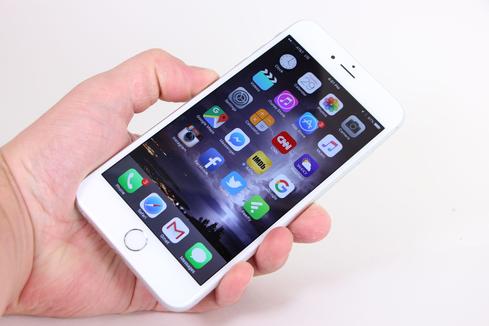Apple iOS 9.0.2 Fixes App Slicing Bug
Apple's promise that iOS 9 would trim down memory use in iPhones and other devices can finally be realized with a newly rolled out iCloud delivery fix.


iPhone 6s Plus Hands-On: 10 Best Features
iPhone 6s Plus Hands-On: 10 Best Features (Click image for larger view and slideshow.)
Apple announced on Monday that the "app slicing" feature in iOS 9 is back in action. For the three weeks since its release, Apple has not been able to deliver on this promised way to make memory-squeezed iPhones work better because of an issue with iCloud.
"The issue affecting app slicing has been fixed," the company announced, "and device-specific versions of apps will be delivered when downloaded by users running iOS 9.0.2 or later."
In late September, Apple was forced to suspend this much-clamored-for feature due to problems with iCloud delivery on which it depended. Instead of device-specific downloads, "universal" apps were provided.
Universal apps cover all iDevices, not just the user's device. iPhones do not need the program resources that are needed to run on an iPad, for example.
Since iOS 9.0.2 has already been released to the public by Apple, this move to thinner apps can start immediately.
App slicing is one part of the "App Thinning" triad of technologies (app slicing, on-demand resources, and bitcode) that effect Apple's solution for getting lower capacity iDevices to be more usable.
Developers do have to create and upload one full version of their app, as it's the slicing process that does the actual work of delivering the specific versions of the software for devices that the app supports. Of course, the developer also has to tell Apple which parts of the universal app are to be delivered to a specific device.
The inability to deliver on app slicing has impaired Apple's launch efforts for the iPhone 6s.
For example, the base 16GB iPhone can easily run out of onboard memory with many universal apps loaded, and Apple has been pushing app thinning as the solution to this situation.
[Read Mobile Ad Blockers: Who Will Pay The Price?]
By using the app slicing technology to load only those parts of the app that are directly needed for the specific iPhone, Apple has been touting that users will gain a much greater effective functionality for the cheaper versions of the 6s that have less onboard memory.
Older iDevices with smaller memory, such as iPads, will benefit from these new systems as well. But, the triad of app thinning technologies is basic to Apple's efforts in making entry-level iPhones and iPads more attractive to price-conscious consumers.
In a separate announcement, Apple also said that it will provide full text transcripts of this year's World Wide Developer Conference sessions, including the keynote at which iOS 9 and OS X 10.11 El Capitan were unveiled.
About the Author(s)
You May Also Like
How to Amplify DevOps with DevSecOps
May 22, 2024Generative AI: Use Cases and Risks in 2024
May 29, 2024Smart Service Management
June 4, 2024







